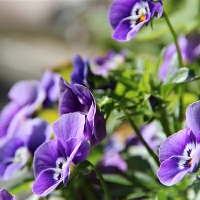It's 211.
"Shanghai Donghua University is 211 University, not 985 University. Donghua University is directly under the Ministry of Education, the national" 211 Project ", and the national" double first-class "first-class discipline construction university. A characteristic national key university focusing on engineering and coordinated development of engineering, science, management, arts and other disciplines. "
What is the ace major of East China Normal University
East China Normal University trump card majors: anthropology, world history, economic zoology, sports human science, system analysis and integration, etc. East China Normal University was founded on October 16, 1951, mainly based on the Daxia University founded in 1924 and Guanghua University founded in 1925. In 2006, the university was identified as a high-level research university under the national "985 Project".
The university adheres to the spirit of "self-improvement" and "integrity" of predecessor schools such as Daxia University and Guanghua University, and the tradition of combining learning and thinking and connecting China with foreign countries, pursues the university ideal of "wisdom creation, national and social development", adheres to the school motto of "seeking truth and creation, being a teacher", and carries forward the advantages of traditional disciplines such as teacher education and educational research, Committed to building a world famous high-level research university

